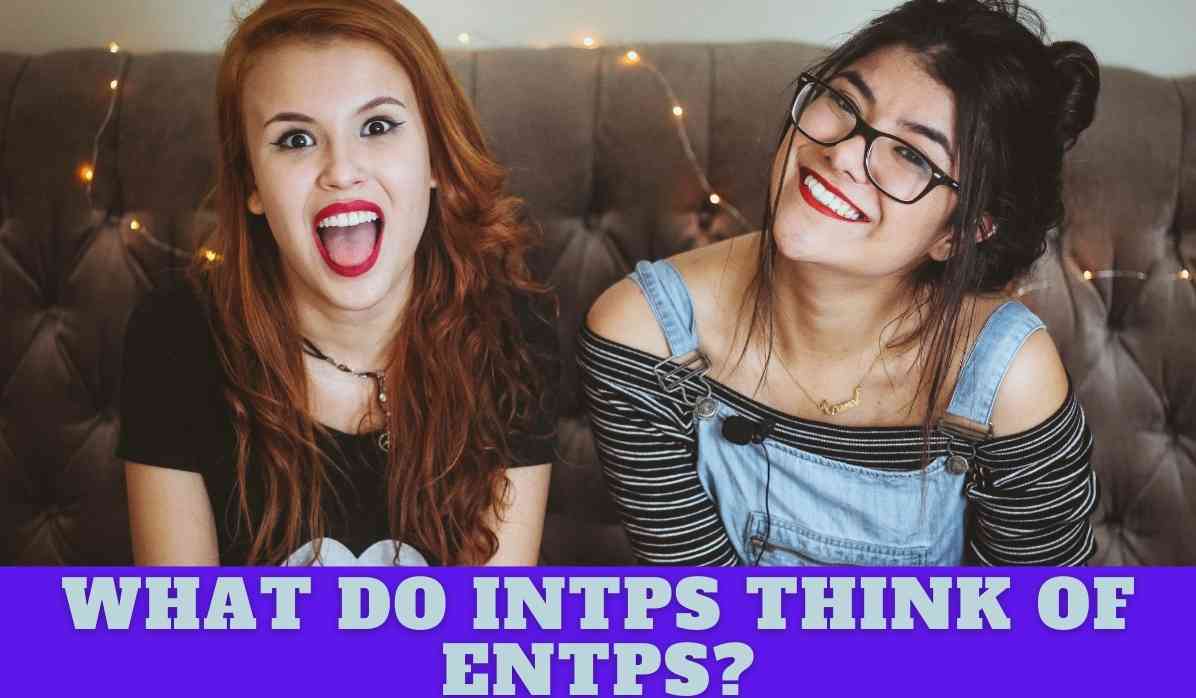What Do INTPs Think Of ENTPs?

INTPs see ENTPs as exciting people to talk to because they are outgoing and creative. They can be a very entertaining company for INTPs who enjoy talking about various topics.
INTPs and ENTPs are two very similar types. They’re like twins, having similar interests and thinking processes.
Most INTPs see ENTPs as a different version of themselves with no filter and excessive energy. They are both very entertaining to each other.
INTPs enjoy watching ENTPs go around and create chaos. In serious situations, INTPs rely heavily on ENTPs to make them feel understood.
INTPs and ENTPs are chaos buddies, making the perfect troll team. Even though both personalities enjoy acquiring knowledge and information, INTPs are prone to research binges.
Generally, INTPs have the most extreme thirst for wisdom. ENTPs retain information from here and there and can definitely outsmart INTPs in specific topics.
Are you curious to know more about how these two personality types match together? Because we are now going to cover in-depth what INTPs like and dislike about ENTPs.
Why Do INTPs Like ENTPs?
INTPs and ENTPs are a match made in heaven. While ENTPs love attention, coming up with ideas, and leading… INTPs enjoy analyzing their ideas, working behind the scenes, and refining abstract ideas to make them more tangible.
One of ENTPs’ aspects that INTPs like the most is their loyalty (they’re like dogs). ENTPs will get into any kind of trouble imaginable just to help their friends. Family and friends are sacred to ENTPs.
INTPs love that they can have long theoretical discussions with ENTPs about pretty much any topic. It’s rare for INTPs to find someone that goes as deep as them into conversations, and when they do… INTPs get hooked.
INTPs enjoy the dynamics of interacting with ENTPs. While the ENTP always thinks of adding things to the mix and has a process-building mentality…
The INTP is subtractive and always wants to reduce things to their simplest form. This back and forth is highly beneficial for both personalities.
ENTPs are great at catching the snarky, under-the-breath comments that INTPs make and burst out laughing as only ENTPs can do. These two personality types love to debate obscure, abstract topics that no one else cares about.
RELATED: Sun Conjunct Sun Synastry: Love & Friendships
Why Do INTPs Hate ENTPs?
ENTPs can be pretty flaky. It’s better for INTPs to be around more reliable personalities because it’s hard for them to fully trust someone. ENTPs are all in when they’re with you but not so good at keeping in touch (similar to INTPs).
INTPs can find ENTPs irritating to work with because they get self-absorbed and try to take credit for everything that happens. It can lead to butting heads as ENTPs can have a huge ego, and INTPs are extreme realists and matter-of-fact personalities.
Even though INTPs are too abstract in their ideas and concepts, ENTPs can be even less skilled at actually applying theory into practice.
INTPs find it annoying how ENTPs will endlessly add more ideas to anything they’re working on without a deep understanding of the big picture of the problem.
INTPs find it frustrating that ENTPs don’t understand how introverts find it taxing and exhausting to interact with other human beings. It just doesn’t get into the ENTPs’ heads that people may take a long time to recharge and refuel their batteries.
INTPs think of ENTPs as dogs. Extremely loyal and fun, but high maintenance and needy. This can lead to many misunderstandings about what friendship means.
INTPs also find it annoying when an ENTP lacks self-awareness, especially when thinking out loud, disrupting everyone else in the room.
ENTPs can become so curious and come up with thousands of questions while now allowing people room to breathe or ask questions back.
What Makes INTPs Trust ENTPs?
INTPs like it when ENTPs respect their need for space and give them time to recharge. Likewise, ENTPs like it when INTPs share their thoughts openly with the hopes that they can discuss them freely.
Both personality types thrive with clear and straight-to-the-point communication. But ENTPs should give INTPs more space and time to think through things and process information, while INTPs could be more patient when listening to ENTPs’ perspectives.
INTPs and ENTPs are very similar in how they see the world and approach problems. It’s easy for them to understand each other’s perspectives.
They share a lot of common traits, including a focus on future-oriented thinking. They also have many interests and prefer to go with the flow. What sets them apart is their energy levels.
ENTPs find it easier to become energized when they are around other people. In contrast, INTPs prefer their own company. They will only be energized in the presence of others if they are communicating on a deep level.
They should be aware of this difference to avoid any communication problems and adapt accordingly. ENTPs need to make sure that INTPs have space for alone time.
RELATED: Sun in Cancer: Meaning, Traits & Compatibility
Final Thoughts
INTPs love that ENTPs always come up with unique ideas and don’t settle down to following rules or the status quo. The way both personalities see the world is very similar, and they make great partners and friends.
If each personality type recognizes its strengths and weaknesses, it can become an insanely productive symbiotic duo.
RELATED: Venus Square Neptune Synastry: Love & Friendships
What’s Next?
How Do You Tell a Fake ENTP From a Real ENTP?
